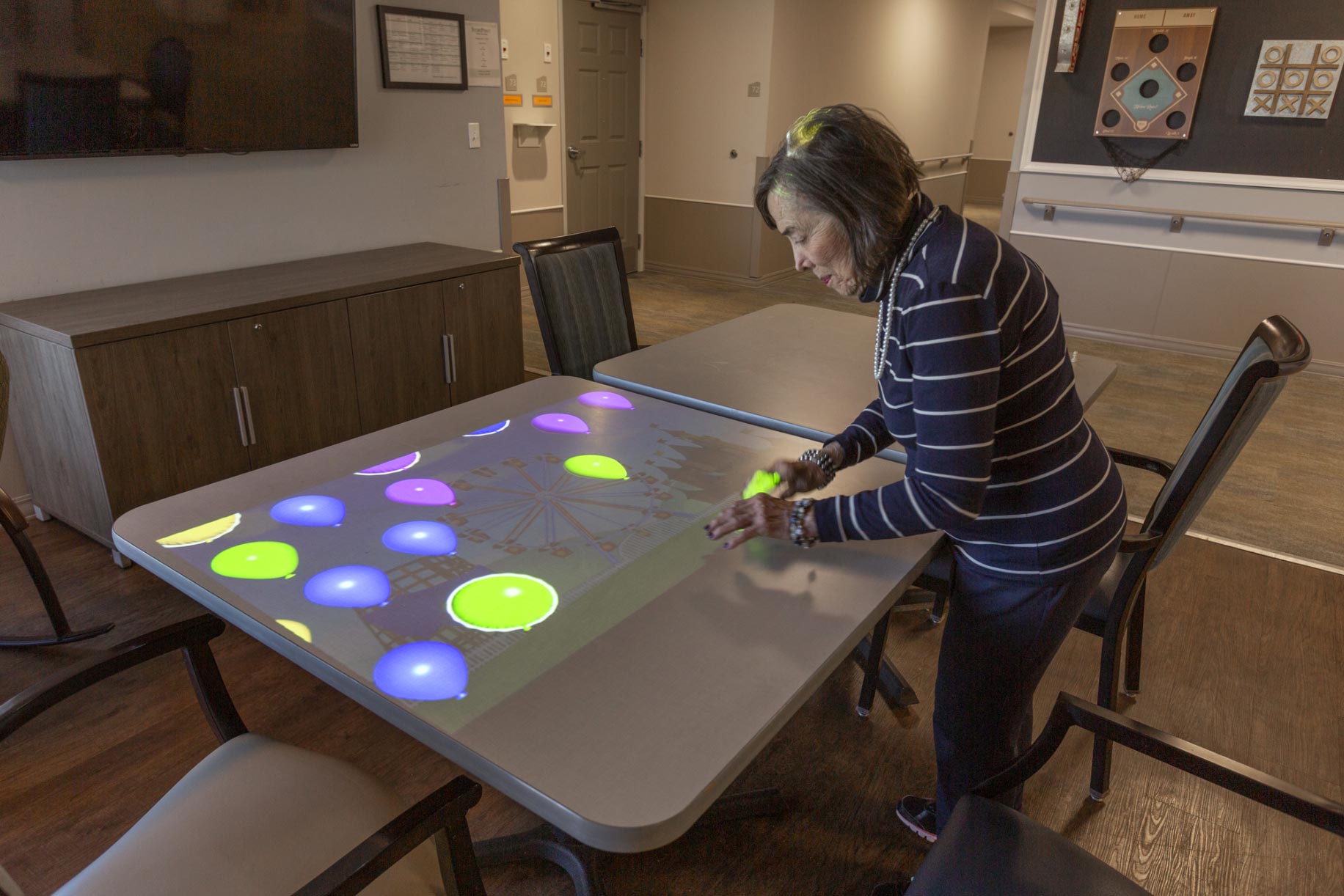Developing a Safe and Encouraging Atmosphere for Alzheimer's Care
The creation of a encouraging and safe environment for people with Alzheimer's is extremely important in boosting their lifestyle. This entails not just physical adaptations within the home, such as decreasing risks and including acquainted aspects, but also the implementation of structured routines and meaningful activities that satisfy their cognitive requirements. Furthermore, recognizing the mental and psychological measurements of treatment can substantially impact their sense of safety and security and link. Exploring these diverse approaches can reveal critical understandings right into reliable caregiving strategies that may change the day-to-day experiences of both patients and caregivers.
Understanding Alzheimer's Needs
Frequently, people with Alzheimer's illness show an array of needs that call for tailored techniques to care. As the problem proceeds, cognitive decrease manifests in numerous means, impacting memory, thinking, and also the capacity to perform day-to-day activities. Caregivers need to recognize these progressing requirements to supply suitable support and ensure a higher top quality of life for those influenced.
One vital element of recognizing Alzheimer's needs is identifying the importance of routine and familiarity. Individuals often find comfort in established patterns, which can decrease anxiousness and confusion. Caretakers must make every effort to develop organized daily timetables that integrate meaningful tasks aligned with the person's capacities and rate of interests.
Furthermore, effective interaction is vital. Individuals with Alzheimer's might battle to express themselves or comprehend complicated language. Caretakers need to use basic, clear language, use non-verbal hints, and practice energetic paying attention to foster understanding and link.
Caregivers must encourage involvement in area tasks or family celebrations, advertising a sense of belonging and purpose. Recognizing these diverse requirements is vital for developing an encouraging care environment.
Designing a Safe Home
Creating a risk-free home for people with Alzheimer's illness is essential to minimizing risks and promoting independence. Make sure that pathways are clear and well-lit, as correct lighting minimizes disorientation and improves flexibility.
Including adaptive attributes is also critical. Install grab bars in shower rooms and near stairs, and think about utilizing non-slip floor coverings in damp locations. Additionally, making use of contrasting colors for wall surfaces and floorings can help in distinguishing rooms, helping to reduce complication.
Experience is very important for individuals with Alzheimer's. Customizing the environment with familiar objects and photos can enhance a sense of belonging and safety - Alzheimers Care Charlotte. It is also useful to have a marked location for day-to-day tasks, such as analysis or crafting, which can give framework to their day
Last but not least, applying a secure exterior room allows for safe exploration while getting in touch with nature. By attentively making the home environment, caregivers can dramatically improve the top quality of life for people coping with Alzheimer's condition.
Enhancing Communication Abilities

Non-verbal interaction, including face expressions, motions, and touch, plays a vital function in communicating empathy and understanding. Maintaining eye get in touch with and a tranquil behavior can improve the convenience degree of the individual, advertising a sense of safety and security.
Additionally, it is essential to exercise energetic listening. This includes being completely present, revealing patience, and enabling the person to share themselves without disturbance. Repeating might be needed; caregivers must be prepared to take another look at inquiries or subjects, as people with Alzheimer's may fight with memory recall.
Additionally, making use of aesthetic aids or cues, such as photos or familiar things, can assist in acknowledgment and interaction. Inevitably, boosting interaction abilities is regarding building count on and producing an environment where individuals really feel heard, valued, and recognized, thereby enriching their lifestyle.
Motivating Social Interaction
Fostering meaningful social communications can greatly enhance the well-being of individuals with Alzheimer's illness. Engaging with others not only aids battle feelings of isolation however also stimulates cognitive Learn More function and psychological health and wellness. Structured social tasks, such as group arts, crafts and video games, or songs therapy, produce possibilities for residents to get in touch with peers and caretakers, which can cause boosted state of mind and lowered anxiety.
Producing an inviting atmosphere that urges socializing is crucial. This can be accomplished by organizing common areas that help with communication, such helpful resources as comfy seating areas or activity areas. Furthermore, incorporating acquainted and culturally appropriate activities can urge and stimulate memories engagement, allowing individuals with Alzheimer's to really feel even more linked to their previous experiences.
Moreover, caretakers must be educated to recognize and promote social involvement among locals. By focusing on social interaction, we can dramatically enhance the lives of those living with Alzheimer's, fostering a feeling of neighborhood and belonging.
Supporting Caregiver Wellness

To sustain caregivers, organizations should provide routine training and educational resources to improve their understanding of Alzheimer's condition and caregiving strategies. Giving access to respite treatment solutions permits caregivers to take necessary breaks, reducing tension and fatigue - Alzheimers Care Charlotte. In addition, fostering an area through assistance teams can help with psychological sharing and the exchange of sensible advice amongst caregivers, creating a network of mutual support
Mental health resources, such as therapy solutions, can also be crucial in resolving the psychological toll caregiving can take. By prioritizing caretaker well-being, we create a more lasting caregiving atmosphere that not only benefits explanation the caretakers themselves but also enhances the general high quality of care gotten by individuals with Alzheimer's. Ultimately, sustaining caregivers is a vital element in cultivating a effective and compassionate treatment setting.
Final Thought
Finally, the creation of a encouraging and risk-free setting for people with Alzheimer's is important to boosting their top quality of life. By focusing on safety and security with thoughtful style, fostering psychological wellness with acquainted aspects, and advertising involvement with structured regimens, caretakers can substantially affect the general experience of those influenced by this condition. Furthermore, supporting caretaker health is vital, as it inevitably adds to an extra reliable and caring care setting.
Repeating may be essential; caretakers ought to be prepared to take another look at topics or concerns, as individuals with Alzheimer's might struggle with memory recall.
